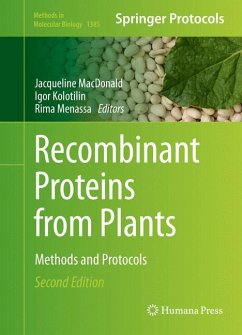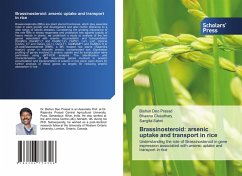
Cloning of two arsenic responsive genes from Lysinibacillus sphaericus
Versandkostenfrei!
Versandfertig in 6-10 Tagen
30,99 €
inkl. MwSt.

PAYBACK Punkte
15 °P sammeln!
Applications of herbicides, pesticides, and fertilizers have greatly increased crop yields in the past. More recently, however, crop yields are barely keeping up with world growth, hence the need for new approaches. Agricultural biotechnology may likely play a key role in the race to feed the world's expanding population with fewer inputs and on less and less available land. Genetic engineering of plants represents the next stage of evolution in our continuing efforts to improve plants used for the production of food and animal feed. Agricultural biotechnology is a powerful technique offering ...
Applications of herbicides, pesticides, and fertilizers have greatly increased crop yields in the past. More recently, however, crop yields are barely keeping up with world growth, hence the need for new approaches. Agricultural biotechnology may likely play a key role in the race to feed the world's expanding population with fewer inputs and on less and less available land. Genetic engineering of plants represents the next stage of evolution in our continuing efforts to improve plants used for the production of food and animal feed. Agricultural biotechnology is a powerful technique offering great potential for agricultural sustainability and safe production of foods with increased nutritive value, improved flavour, prolonged freshness, and even disease-fighting properties, but it is not without controversy. The potential for the transgenic crops to alleviate human hunger, and the controversies which are invariably based on visions of the new technology from widely different ethical perspective which have divided both the public and the scientific communities are discussed.












